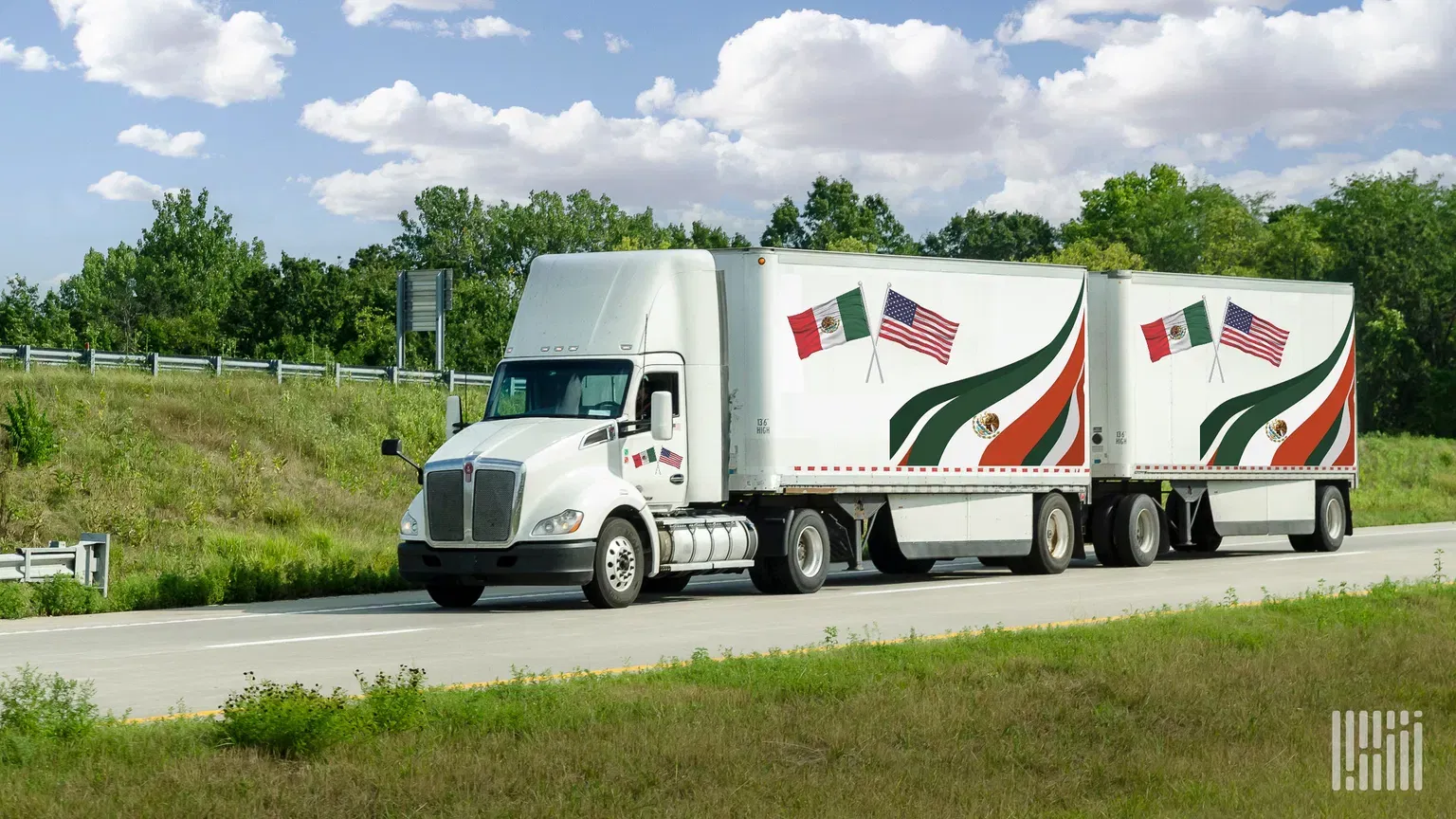主要亮点:
- 美国已终止与墨西哥的番茄贸易协议,此举一方面受到美国种植户的赞扬,另一方面也引发了人们对成本上涨和经济影响的担忧。.
- Amports已扩大其在墨西哥拉萨罗卡德纳斯港的车辆存储能力,以增强汽车出口部门。.
- 拉雷多海关与边境保护局官员截获了一批藏匿在来自墨西哥的冷冻覆盆子货物中的非法麻醉品。.
本周,关于美国-墨西哥跨境运输和贸易出现了许多新进展。其中包括引发热议的番茄贸易协议终止这一热门话题,Amports在墨西哥主要海港扩大车辆存储,以及一批货物中意外查获毒品。 这些要点都对物流格局产生重大影响。.
终止番茄贸易协定
他们说当一扇门关闭时,另一扇门会打开,但美墨两国于2019年达成的番茄暂停协议的终止,已在农业和贸易界引起了震荡。在美国商务部宣布终止这项协议后,各利益相关者的反应并不一致。.
此前,该协议允许美国政府对墨西哥番茄的价格施加控制,以确保进口产品不会以较低的价格涌入市场,从而削弱国内种植者的竞争力。然而,此次终止协议使得这种控制措施受到质疑。.
“长期以来,我们的本地农民都面临着不公平的竞争,而今天这一切都将结束,”商务部长的声明庄严宣布道。随着新规的出台,似乎即将迎来一连串的食品杂货价格上涨,物流行业人士正密切关注着。预计的番茄价格上涨可能会使农产品的物流陷入更加复杂的困境,影响从运输成本到交货时间表的方方面面。.
仅在2024年,美国就从墨西哥进口了价值超过10亿美元的新鲜番茄,突显了对这些进口产品的严重依赖。鉴于对墨西哥番茄征收新关税以及曾经帮助稳定市场的价格管控的结束,这些货运的未来仍然不明朗。边境口岸,尤其是德克萨斯州拉雷多,大量此类产品由此通过,由于潜在的供应中断,可能会出现运营流量的波动。.
经济对话
在各派势力纷纷表达意见之际,佛罗里达番茄交易所宣告协议的终结是一场胜利,赞扬政府采取积极姿态对抗他们所谓的“不公平贸易行为”。与此同时,贸易分析师警告说,这些变化可能会带来意想不到的后果,威胁到边境各州的就业和金融稳定。.
在依赖这些贸易路线的州,失业的威胁日益逼近,这为物流叙事增添了一层复杂性。由于在严重依赖这种农业贸易的地区,数千个职位岌岌可危,人们不禁想知道物流系统将如何适应生产和分销渠道的潜在转变。.
相比之下,墨西哥当局并未忽视经济影响,总统欣鲍姆誓言就进口关税的征收进行谈判,表明贸易方面持续的相互依赖。得益于构成供应链的复杂物流支持网络,两国共同承担了这种关键农业交换的负担和利益。.
Amports在拉萨罗卡德纳斯港的扩张
在更乐观的消息方面,Amports已投入 150 万美元用于扩大其在拉萨罗卡德纳斯港的车辆存储能力——此举旨在巩固墨西哥在汽车出口市场的地位。该设施可存储多达 5,000 辆汽车,正为寻求优化其物流和运营的原始设备制造商 (OEM) 奠定运营效率的基础。.
该港口的战略位置使其成为汽车物流链中的一个重要环节,确保制造商能够有效地满足全球市场日益增长的需求。通过此举,物流供应商可以期望看到运营的敏捷性得到增强,从而有助于防范因美国和墨西哥之间贸易协定的变化而造成的干扰。.
美国海关与边境保护局查获毒品
美国海关与边境保护局(CBP)截获了一批数量可观的可卡因——74.6磅藏在一辆运送冷冻覆盆子的卡车的电池中,这鲜明地提醒人们边境面临的挑战。此类事件凸显了边境物流系统面临的持续复杂性,执法机构需要在贸易便利化和安全保障之间保持微妙的平衡。.
来自边境的报告强调,相关方面持续致力于监控和控制,不仅关注货物运输,还关注走私活动带来的风险。这种监管结合为物流公司提供了机会,使其能够在保持交付效率的同时,完善其安全协议。.
结论与对物流的影响
总而言之,这些发展对整个北美地区的物流具有重大影响。番茄贸易协议的终止推动了国内种植者和进口商之间的平衡,同时促使人们重新认真评估支持该贸易的物流网络。与此同时,Amports的扩张为汽车行业和边境运营带来了积极前景,因为各公司都在适应不断变化的需求。.
即便拥有最好的信息和评价,也比不上亲身实践的经验。为了减轻您规划下一次货物运输的负担,GetTransport.com 以具有竞争力的价格提供广泛的解决方案。无论是搬运笨重物品、搬迁办公室,还是促进全球货物交付,该平台都能确保透明和便捷。 因此,当您需要规划下一次物流运营时,请考虑 GetTransport.com 提供的可靠性。. 立即在 GetTransport.com.com 预订您的行程。.

 美墨番茄贸易协定终止引发不同反应">
美墨番茄贸易协定终止引发不同反应">